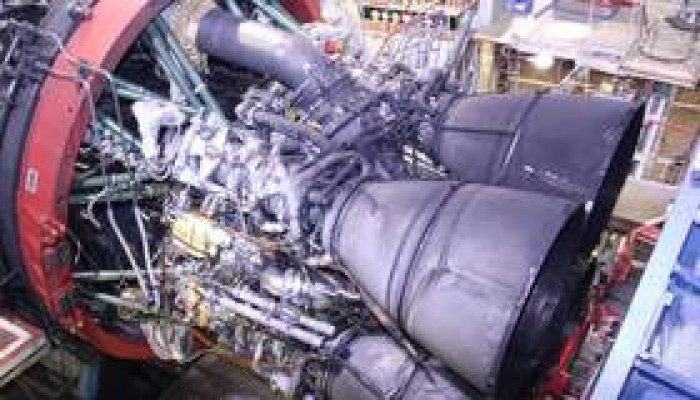Russia constructs most powerful rocket engine in the world
- In Reports
- 09:38 PM, Jun 23, 2023
- Myind Staff
According to reports, the Energomash Research and Production Association has achieved a significant milestone by completing the production of the first RD-171MV liquid-fueled rocket engine. This state-of-the-art engine is claimed to be more powerful than any other similar propulsion system worldwide. Roscosmos, the Russian state space corporation, announced the successful construction and highlighted its intended use in the inaugural flight tests of the upcoming Soyuz-5 launch rocket.
As per reports, Energomash plans to finalize the assembly of a second carrier and manufacture an engine for a third one in the current year. The company also emphasized that multiple fire tests have already been conducted on the engine, while two additional RD-171MVs are undergoing final finishing tests.
“The next stages of the program will be interdepartmental tests of the RD-171MV and the serial supply of engines for Soyuz-5 missiles,” the state corporation said.
According to Roscosmos, the recently developed RD-171MV rocket engine, based on the earlier RD-171M model from 2001, is set to serve as the foundation for the new Soyuz-5 rocket. The thrust capability of this engine surpasses 800 tons, solidifying its position as the world's most powerful rocket engine.
According to Roscosmos, the Soyuz-5, also known as Irtysh, will feature a two-stage configuration and is anticipated to launch from the Baikonur space station in Kazakhstan. This powerful rocket will be capable of delivering payloads weighing up to 17 tons to space. Its primary objective will involve transporting automated space devices to various near-Earth orbits.
In the midst of the ongoing conflict between Moscow and Kiev Europe has encountered challenges in its space operations. The sanctions imposed on Russia's space industry have resulted in European space companies losing access to Russian Soyuz rockets. Following a failed launch of the Vega-C rocket in December, attributed to a defective part manufactured in Ukraine, European space companies have experienced further limitations in their capacity for commercial satellite launches.
Image source: RT.com







Comments